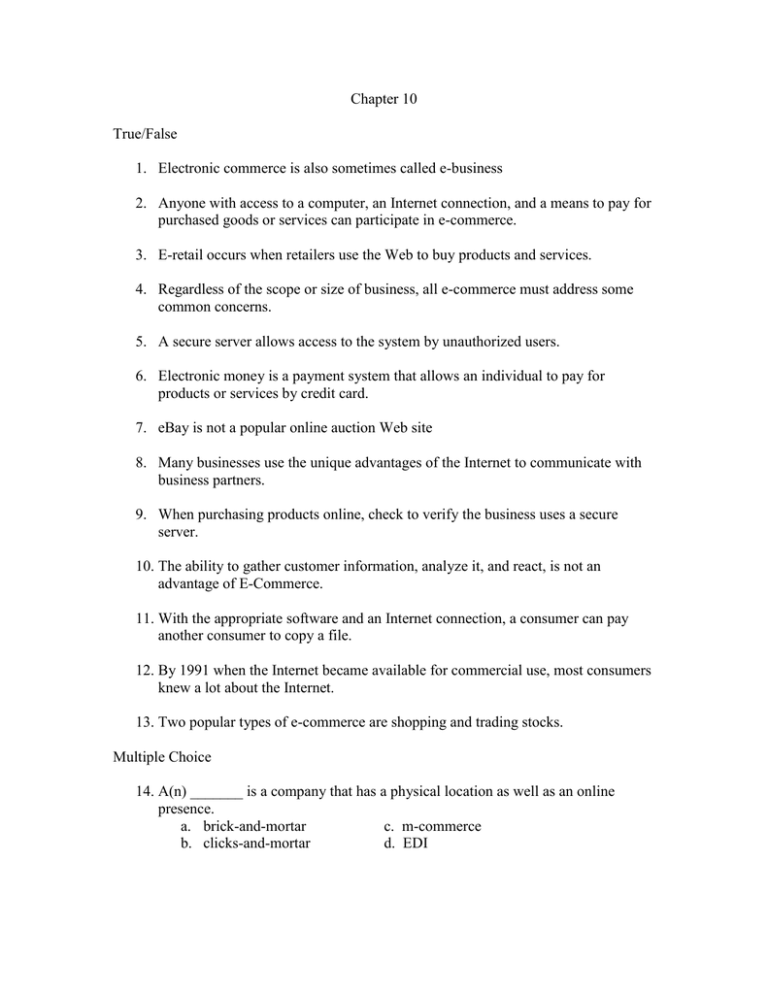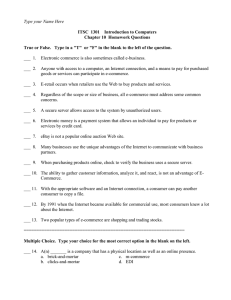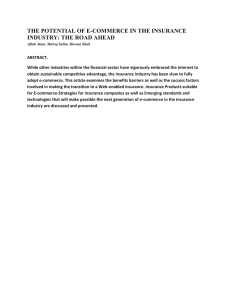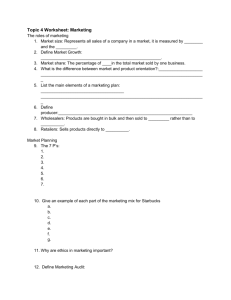Chapter 10 True/False 1. Electronic commerce is also sometimes called e-business
advertisement

Chapter 10 True/False 1. Electronic commerce is also sometimes called e-business 2. Anyone with access to a computer, an Internet connection, and a means to pay for purchased goods or services can participate in e-commerce. 3. E-retail occurs when retailers use the Web to buy products and services. 4. Regardless of the scope or size of business, all e-commerce must address some common concerns. 5. A secure server allows access to the system by unauthorized users. 6. Electronic money is a payment system that allows an individual to pay for products or services by credit card. 7. eBay is not a popular online auction Web site 8. Many businesses use the unique advantages of the Internet to communicate with business partners. 9. When purchasing products online, check to verify the business uses a secure server. 10. The ability to gather customer information, analyze it, and react, is not an advantage of E-Commerce. 11. With the appropriate software and an Internet connection, a consumer can pay another consumer to copy a file. 12. By 1991 when the Internet became available for commercial use, most consumers knew a lot about the Internet. 13. Two popular types of e-commerce are shopping and trading stocks. Multiple Choice 14. A(n) _______ is a company that has a physical location as well as an online presence. a. brick-and-mortar c. m-commerce b. clicks-and-mortar d. EDI 15. All of the following are advantages of E-Commerce except: a. Global market 24 hours/day c. Options to create paperless environment b. Feedback can be immediate d. FAQ are not available 16. A(n) _________ is the Web site where an e-retailer displays its products. a. shopping cart c. Web application b. electronic storefront d. P2P 17. A(n) _________ prevents access to the system by unauthorized users. a. merchant account c. secure server b. commerce server d. Web host 18. Unsolicited e-mail messages or newsgroup postings are called _______. a. banner ads c. spam b. junk mail d. site ads 19. An e-business has to generate _______ to turn window shoppers into actual customers. a. millions c. enthusiasm b. curiosity d. trust 20. Many e-retailers use __________ to keep in touch with customers. a. e-mail publishing c. banner ads b. site ads d. e-commerce software 21. All of the following are domain names of e-commerce sites except: a. scsite.com c. dillards.com b. amazon.com d. dell.com 22. Some factors that lead to e-commerce customer loyalty are: a. Price, selection, shipping c. Price, difficulty of ordering, shipping b. shipping, selection, no privacy d. none of the above 23. _______ allows you to pay bills from your computer. a. shopping bot c. online banking b. online trading d. Web host 24. _____ is a set of standards that control the transfer of business data and information among computers both within and among companies. a. B2C c. ESD b. EDI d. B2E 25. At first, e-commerce transactions were conducted primarily through __________. a. mainframes c. desktop computers b. cellular telephones d. Amazon.com




